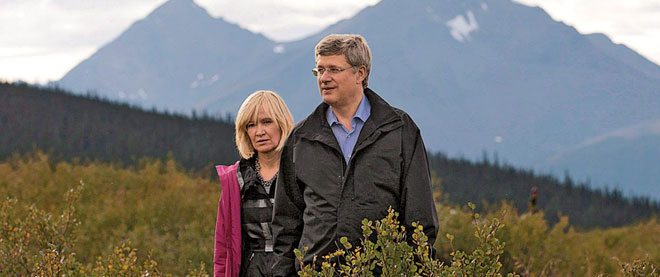Taking the shine off those gold-plated pensions
Maclean’s editors on the changes to MP’s pensions; and on the death of Newsweek
ADRIAN WYLD/CP IMAGES
Share

Hypocrisy has rarely found firmer footing than in the matter of politicians’ pensions. Rule-makers in Parliament have long exempted themselves from the very rules they imposed on the rest of us. Last week, however, Ottawa finally established a more realistic and austere pension plan for federal politicians.
The changes to MP pensions, pried out of the Conservatives’ latest omnibus bill and given swift all-party approval on Friday, will shift the age of eligibility for MPs from 55 years to 65. This is a significant move in terms of fairness, particularly given Ottawa’s plan to raise eligibility for Old Age Security to 67 years for everyone else. Annual pension contributions will also rise substantially—from the current $11,000 to almost $39,000, which amounts to nearly a quarter of an MP’s basic salary. And in a symbolic move, Prime Minister Stephen Harper has cut his own post-political haul by hundreds of thousands of dollars. A little-known prime minister’s allowance, paid to former prime ministers who’ve served at least four years, has been significantly reduced and the changes made retroactive to when Harper first took office.
The Canadian Taxpayers Federation, which has quite properly derided “gold-plated” political pensions across Canada for years, called the moves “the most significant reform to MP pensions we’ve seen in our 22-year history.” While MP pensions are still rather more attractive than the average Canadian’s retirement package—they kick in after just six years of service, for example—the federal government has brought an appropriate balance to this tricky business.
Any discussion of MP pay and benefits must recognize that democracy is improved when Canadians from a variety of occupations, income brackets and viewpoints are able to enter politics. But middle-class aspirants can’t simply skip their best earning years to seek office if the job of MP is not appropriately compensated. It’s worth noting the C.D. Howe Institute recently recommended any hikes in MP pension contribution rates be accompanied by MP pay increases to compensate for the extra expense, something the current reform package avoids. So the changes are actually a bit more parsimonious than some critics demanded. Perhaps the perennial issue of MP pensions has finally been retired.
For those of us in the business, last week’s announcement of the demise of Newsweek’s print edition feels almost like a death in the family. But while Newsweek may have given up on the printed word, Maclean’s most certainly has not.
Newsweek, with a history stretching back to 1933, will shortly be subsumed into online news site The Daily Beast and cease to exist as a paper publication. “We’ve taken the big digital step,” editor-in-chief Tina Brown said in announcing the move.
But it’s a mistake to draw any broader lessons from the death of Newsweek. The magazine suffered sharp declines in readership of late (and according to the latest report from the Audit Bureau of Circulations, its circulation fell 53 per cent between 2007 and 2011). Maclean’s, on the other hand, has seen our overall readership improving in the last few years. We now boast 2,474,000 total weekly readers—and among the supposedly fickle 18-34 age demographic, our readership has held steady at approximately 25 per cent.
Any proper eulogy of Newsweek must note its death looks to have been largely self-inflicted. Its editors seemed to have given up on the printed page long before last week’s decision. A recent double-issue of the magazine contained just 68 pages. Maclean’s, on the other hand, has been steadily increasing the amount of content we offer readers; the regular weekly issue weighs in at 84 pages and our upcoming special editions, such as the widely anticipated University Rankings and Newsmakers issues tip the scales far beyond that. Further, readers’ appetite for the newsweekly format remains strong, a fact proven not only by our numbers but the continued success of other international brand names such as The Economist and Der Speigel.
Of course everyone in the industry recognizes digital delivery is becoming increasingly important, and Maclean’s is firmly committed to our online and tablet editions. This week, in fact, our digital coverage earned gold awards in news, social media and cross-platform programming at the Canadian Online Publishing Awards. And we’re equally excited about our new range of ebooks, which permit lengthier, in-depth examinations of topics from Queen Elizabeth II’s Diamond Jubilee to the Shafia honour-killing trial.
However you choose to read us, Maclean’s plans on delivering the best in news and opinion for another 107 years.